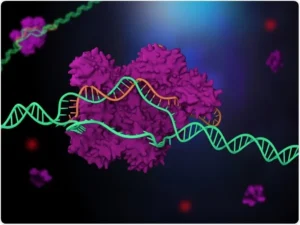Patients today have more choices for medications than ever before. Biologics and synthetics are the major classes of drugs. They both treat diseases and improve health, but they are produced, work, and are used in different ways. Understanding the difference between biologics and synthetics can help you choose a drug to treat a chronic disease, autoimmune disease, or cancer. As precision medicine and biotechnology advance, the relationship between biologics and synthetics is a hot topic. Understanding what makes these treatments unique is crucial to the future of medicine. Let’s simplify and explain.
What are biologics?
Complex biologics are made from living organisms or their components. They are extracted from humans, animals, or microorganisms using advanced biotechnology. The large, complex combination of compounds or components makes these drugs difficult to replicate. Monoclonal antibodies, vaccines, blood, and gene therapies are all biologics. Biologics help treat autoimmune diseases such as rheumatoid arthritis, Crohn’s disease, and certain malignancies. Because they come from living organisms, they can target specific parts of the immune system. Unlike oral medications, biologics must be injected or injectable. The digestive system breaks down the complex proteins before they can do their job. Biologics are expensive, require special storage methods, and must be taken under a doctor’s supervision, but they work. Plus, their targeted relief with fewer side effects has revolutionized modern medicine.
Synthetic Drugs?
Synthetic drugs are drugs that are chemically synthesized. Aspirin, antibiotics, and blood pressure medications are common drugs. Laboratories use precise chemical reactions to create small, mass-produced compounds. Synthetic drugs are stable at room temperature, less expensive, and available in pill, capsule, or liquid form. The convenience and ease of use of synthetic drugs are their main advantages. They can be purchased at a pharmacy near you without further processing. These drugs have been a cornerstone of medicine for decades, used to treat a variety of conditions from infections to chronic pain. Although synthetic drugs are widely used, they may not successfully treat complex or immune-related diseases, while biologics may work better. Nevertheless, their affordability and ease of use have made them popular worldwide.
Key Differences Between Biologics and Synthetic Drugs
Differences in molecular structure distinguish biologics from synthetic drugs. Large, complex biologics are usually made of proteins or other organic compounds. Synthetic drugs are chemically synthesized and are small and homogeneous. This difference in size and complexity affects everything from structure to body function. Targeted biologics interact with cells or molecules of the immune system. Synthetic drugs often damage multiple body systems. Another key difference is cost and route of administration. Synthetic drugs are less expensive than biologics and can be taken at home, while biologics must be taken under a doctor’s supervision. Biologics, including biosimilars, are approved and regulated by the FDA in different ways. Because generics are chemically identical, they are easier to approve and distribute.
Applications in Modern Healthcare
Biologics and synthetic drugs play an important role in healthcare, and the choice depends on the specific disease. Biologics can target specific cells or molecules, making them superior to synthetic drugs in treating immune system diseases such as psoriasis, lupus, and certain malignancies. Synthetic drugs are often used to treat bacterial infections and acute discomfort because they are fast, readily available, and inexpensive. In oncology, synthetic drugs are used for chemotherapy and biologics for immunotherapy. Biologics have great prospects in personalized medicine, where treatment plans can be tailored to a patient’s genetic profile. New chemical compositions and delivery technologies have improved the effectiveness of synthetic drugs and reduced side effects. Many treatments may eventually combine biologics with synthetic drugs to achieve broader coverage and more precise targeting.
Considerations and Future Prospects for Patients
Looking ahead, biologics and synthetic drugs are converging. New hybrid drugs, bioenhancers, and advanced formulations combine the advantages of both types of drugs. Patients must weigh cost, accessibility, side effects, and lifestyle when choosing a drug. Even if biologics are more effective, weekly injections of biologics may not be as attractive as a daily pill. Biologics are expensive and may require prior authorization, so insurance is crucial. Self-injection systems and long-acting formulations are breakthroughs in biotechnology that make biologics easier to use. Advances in chemistry and nanotechnology are making synthetic drugs more targeted and effective. Educating yourself and asking your doctor the right questions is the best way to choose a treatment.
Conclusion
Understanding biologics and synthetic drugs is useful for everyone in healthcare, not just doctors and scientists. Both types of drugs have different treatment approaches, and each has its advantages and disadvantages. Biologics are precise and especially useful for immune-related diseases, but they are expensive and complex to administer. Synthetic drugs are reliable and easy to use but may not be suitable for some current situations. As breakthroughs in biotechnology continue, the convergence between these fields is expected to increase. What matters most is how these medicines improve lives, provide relief, and bring hope. Understanding the difference between biologics and synthetic medicines can improve your treatment options and give you direction, whether you’re treating a chronic condition or starting over.
FAQs
1. What’s the difference between biologics and synthetic medicines?
Biologics are large, complex substances produced by living organisms, while synthetic medicines are chemically made and smaller.
2. Are biologics better than synthetic medicines?
Not necessarily. Treatments vary by condition. While biologics are more effective for some conditions, synthetic medicines are less expensive and more readily available.
3. Can I take a pill or a biologic?
Biologics are proteins that are broken down by the digestive system, meaning they must be injected or injectable.
4. Are alternatives to biologics cheaper?
While biosimilars are not equivalent to generic versions of synthetic medicines, they are cheaper alternatives to biologics.
5. Which medicine has fewer side effects?
Biological medicines are more targeted and may have fewer side effects, but both can cause side effects.





Comments
Reading this feels like tracing a familiar pattern in nature — comforting, precise, yet ever revealing new details with each careful observation.